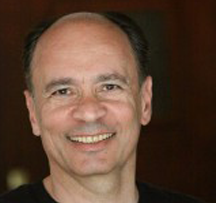Food Systems Podcast 43
In discussion with Tassos Haniotis summary
Thursday, Oct 13, 2022
Is it a false dilemma that people have to choose between either food security or climate action?
In this first episode of our new series we talk with Tassos Haniotis, former AGRI Director and former AMIS Chair, about Ukraine and the extent to which that conflict has brought into focus some of the uncertainties that have impacted on agricultural markets since the late 2010s and the false dilemmas that Tassos has talked about in relation to the sustainability of agriculture. Is it a false dilemma that people have to choose between either food security or climate action? For a taster, read our short summary below, or dive into the full 23-minute Food Systems Podcast for much more.
What do you see those uncertainties are and what do you think the impact has been?
Since summer 2021, there have been upward pressures on prices for energy, metals, minerals and to some extent agriculture for three interrelated reasons. There is huge uncertainty about where in the short and medium-term agricultural markets are going to stabilise. The second reason has to do with the energy link of the war in Ukraine. Thirdly, the war makes people rethink types of friendships, alliances and international relations. This has an impact on the debates and policy choices we have to make on climate action and food security.
Are tensions between food security and climate action becoming greater or is it a false dilemma?
Tensions exist and we need to recognise them. The dilemma is created when we believe that it is either or. We have to see how and where we can bring together action for climate change and action for food security.
Food security is about food availability and food affordability. It’s about the stomach and the pocket. The way to actually produce more means that this has to be done in a manner that is more sustainable today. There are practices throughout the food spectrum that demonstrate we can increase economic and environmental efficiency at the same time. We have failed to link these experiences and to communicate better.
Where are we failing?
Sometimes nowadays, we start with policy options without really looking at the underlying evidence. Our starting point has not been to identify the problem and the potential options, weigh the pros and cons and try to find a combination of economic, environmental and social aspects of sustainability. This is going to be very different within and between member states. We started with general ideas we considered applicable everywhere in the same way. That has distorted the debate for quite some time.
You have argued that environmental problems are a failure of both public policies and private markets. Can you elaborate?
Markets provide extremely important signals we should not ignore. But they are not perfect. One of their biggest failures over the years is in accurately reflecting the environmental footprint of our practices, not just in agriculture. We need to address this failure and look at what our policies have, and have not, done so far and not minimise the progress made.
We should be very clear about what the private and the public sector can do with synergies. We need both and need to combine both.
The challenges of food and environmental security and climate action are global. Are local solutions necessary and can they be sufficient?
We need to focus more on local solutions because part of what they do is reintroduce an element of diversity that we are about to lose. My starting point is that both climate change and food security are global problems. We need to see the big picture when we try to apply local solutions.
Food security is a global issue. If you have a very significant deficit in some parts of the world, you are going to feel it in all parts of the world through price mechanisms and trade flows.
What is your biggest concern in achieving a more resilient and sustainable food and agriculture system? And biggest cause for optimism?
Clearly the biggest concern I have is that we have war on European soil. All the fundamental elements and aspects we took for granted in the post war situation, including respect for frontiers and international rules, have been very severely challenged. That is going to have certain costs in the short and medium term. We will have to bear these if we really want to make sure the world tomorrow, after this situation, is safer.
On the positive side, in a crisis you see not only the ugly, but the positive, face of human behaviour. It also brings to the forefront the need to address climate and food security in a manner that is potentially complementary.
If you have found this short summary interesting, there’s lots more to hear in the full 23-minute conversation. It is available now on iTunes, Podbean or Spotify or on this website.

Tassos Haniotis
Tassos Haniotis recently retired, after a 33-year career in the Commission, as the Director of Strategy, Simplification and Policy...see more
